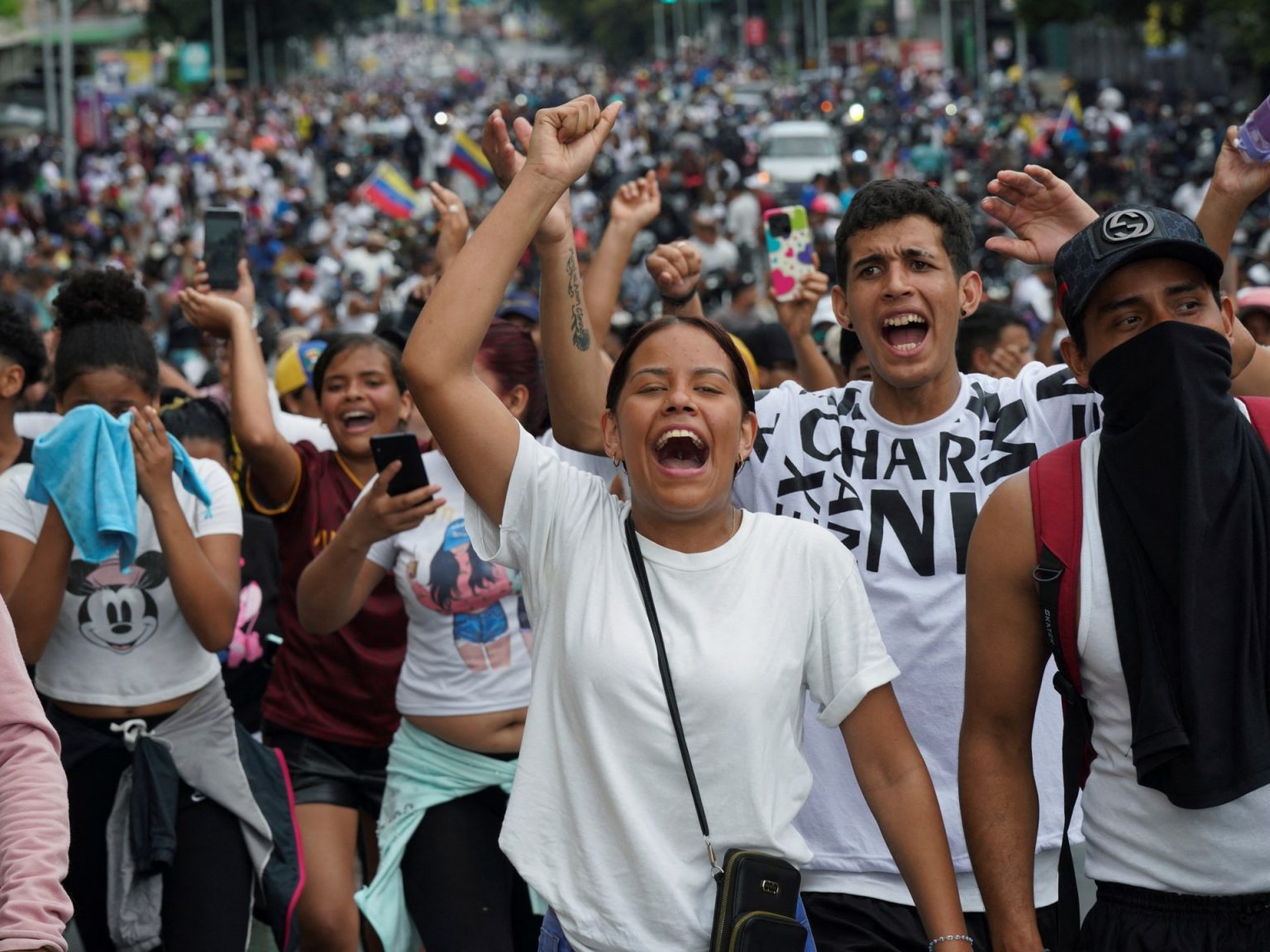The streets of Venezuela have been filled with protesters denouncing President Nicolas Maduro’s election win, which they say was fraudulent. The opposition accused the National Electoral Council of being loyal to the ruling party and not allowing proper oversight during the vote counting process. Despite claims of irregularities, Maduro was certified as the winner with 51 percent of the vote. The Democratic Unitary Platform, led by Maria Corina Machado and Edmundo Gonzalez, disputed the results and claimed victory based on their own tally sheets.
Elections in Venezuela use electronic machines that provide a paper receipt of each voter’s choice. Opposition party representatives are supposed to be able to witness the process and obtain copies of the final tally sheet. However, the opposition claimed that some witnesses were blocked from observing the counts and that the tallies were not printed in some instances. The CNE had not released the tallies from all polling stations, leading to tensions and accusations of fraud. Chief Prosecutor Tarek William Saab launched an investigation against Machado for allegedly manipulating voting results.
After the election results were announced, protests erupted in the streets of Caracas and other cities in Venezuela. Opposition supporters banged pots and pans from their balconies in a traditional Latin American form of protest known as cacerolazo. The demonstrations soon spread to the main roads, with young protesters waving flags and chanting for liberty. Concerns have been raised about potential violence escalating in the country, especially as paramilitary forces loyal to Maduro have been present at the protests. The NGO Penal Forum recorded 46 people arrested during the protests.
The opposition’s next steps are uncertain, with over 100 aides and allies of Machado and Gonzalez already arrested in recent months. The opposition is cautious not to call for violence or massive demonstrations, as this could lead to further government repression. Both the opposition and the government have called for demonstrations on Tuesday, with the opposition inviting families and children to participate in citizen assemblies. International actors, including the United States, United Kingdom, and several Latin American countries, have expressed concerns about the election results, while countries like China, Cuba, Iran, and Russia have congratulated Maduro.
The Organization of American States has called for an extraordinary meeting to address the election results, and US President Joe Biden and Brazilian President Luiz Inacio Lula da Silva are expected to discuss the situation in Venezuela. Brazil’s Ministry of Foreign Affairs emphasized the importance of transparency, credibility, and legitimacy in the electoral process and is waiting for the CNE to release data broken down by polling stations. The situation in Venezuela remains tense, with uncertainty about the outcome of the protests and international reactions to the disputed election.


